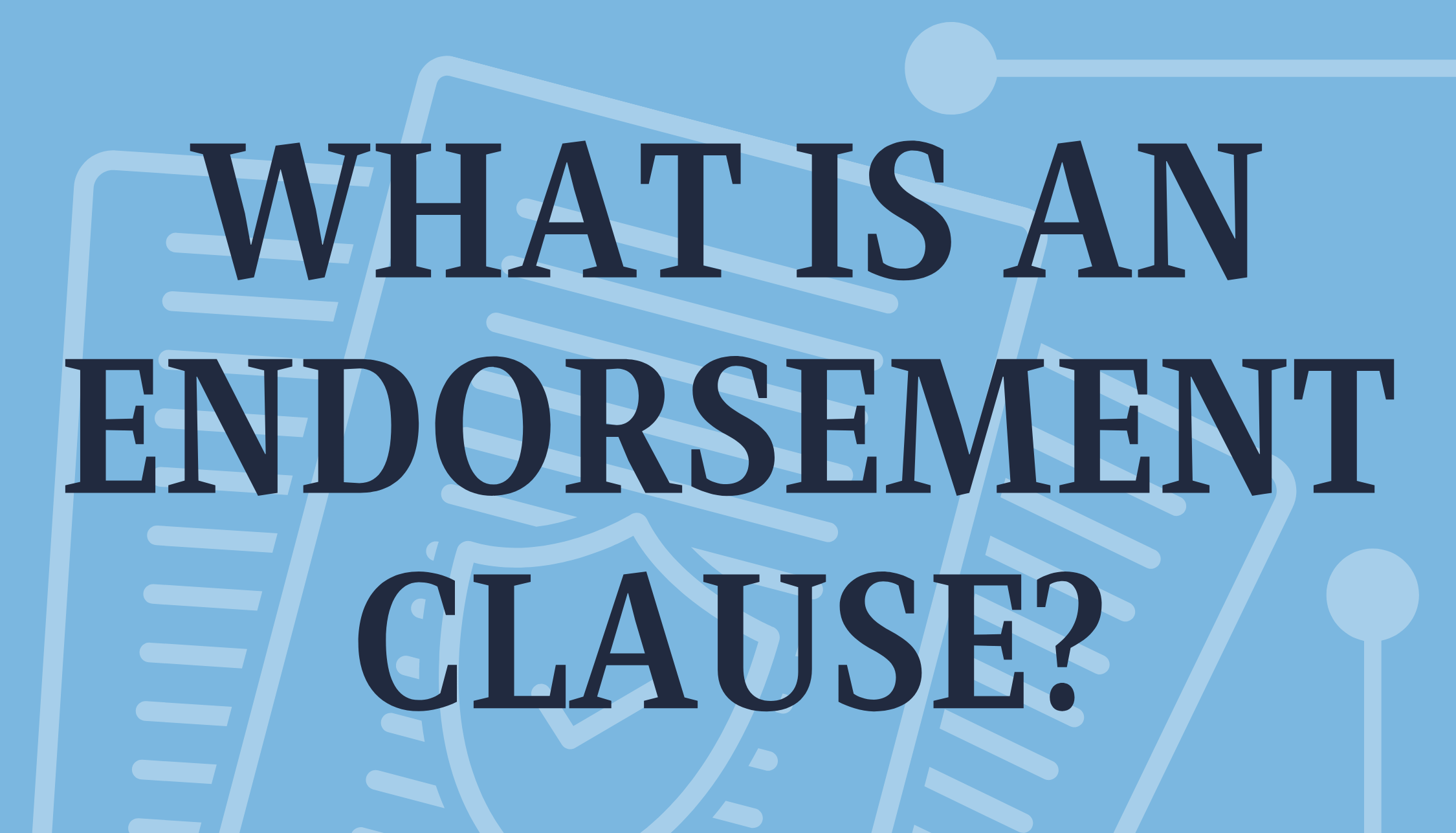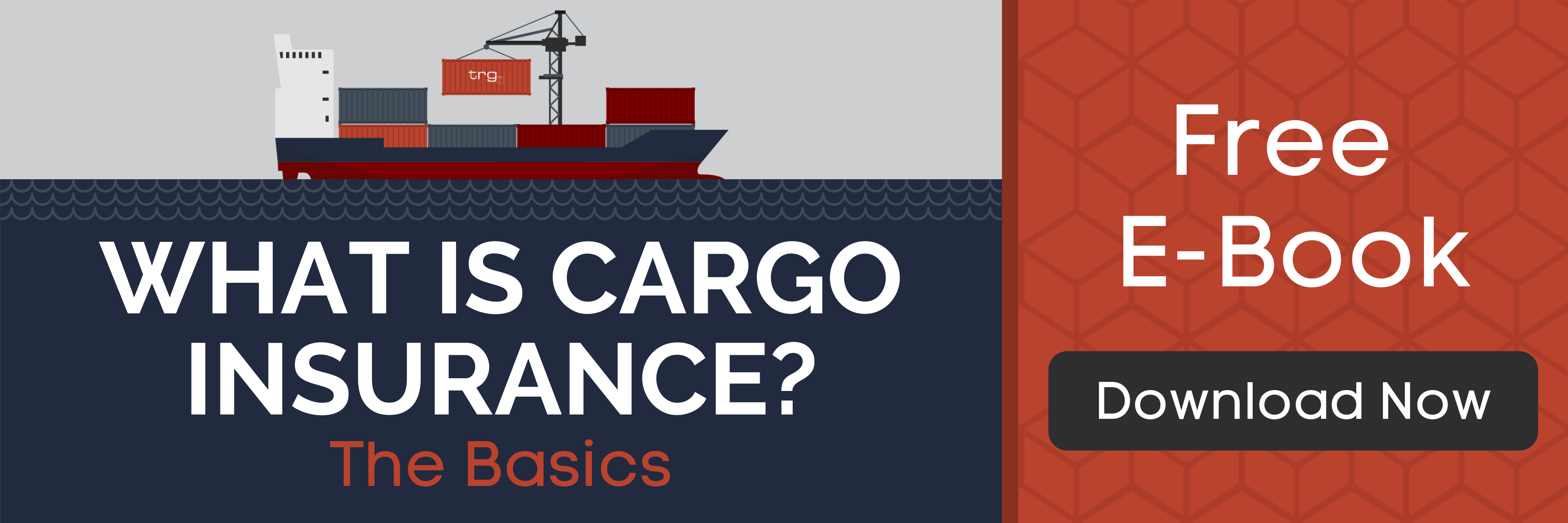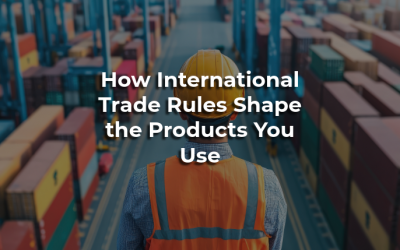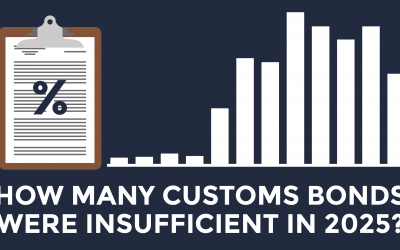An insurance endorsement clause, also called a rider, is an amendment attached to an insurance contract that adds, removes, or changes the policy’s coverage.
An endorsement clause can be added when a Marine Cargo Insurance policy is issued, during the policy term, or when the policy is renewed. It can increase or decrease insurance costs, depending on what changes are made to the policy. Endorsements can have their own limits and deductible.
Endorsements generally serve one or more of the following purposes:
- Removing coverage: Endorsements can serve as exclusions, eliminating coverage for certain types of claims.
- Adding coverage: Endorsements can add coverage not provided by a basic policy.
Modifying coverage: Endorsements can modify the scope of coverage rather than adding or removing it entirely. - Editorial changes: Endorsements can clarify the intent of a policy without altering the coverage.
- Administrative changes: Endorsements are added for administrative purposes, such as changing the insurer’s mailing address or updating the policyholder’s name.
Types of Insurance Endorsement Clauses
Insurance endorsements can be:
- Standard, which means an industry advisory organization publishes them
- Non-standard, which means insurers develop them
- Voluntary, which means they’re added when requested by the insurer or the insured
- Mandatory, which means they are required to be added to the policy
Standard
Insurance advisory organizations create standard endorsements and they are common in the marketplace. For insurers, standard endorsements are generally less of a risk than endorsements they have drafted themselves because their meaning tends to be universally understood.
Non-Standard
Insurers devise Non-standard endorsements with their own wording. An insurer may draft an endorsement to achieve a purpose for which no standard endorsement is available.
Endorsements created by insurers are generally variations of standard endorsements. The insurer uses a standard endorsement as a template and then alters the wording as it chooses.
Some non-standard endorsements are drafted for a specific policyholder. These are designed to be used on a single policy and address unique situations.
Voluntary
Some endorsements are added to a policy voluntarily, at the option of the insured or the insurer. The insurer elects extra endorsements.
Mandatory
Some endorsements are mandated by state law. The insurer may also require these endorsements.
Common Marine Cargo Insurance Endorsements
Marine Cargo Insurance is a specialized branch of insurance, so insurance endorsements are specific to the needs of those shipping cargo. The following is an overview of some common policies that include different endorsements for a marine cargo insurance policyholder.
Named Perils
Named perils coverage refers to Institute Cargo Clauses B and C. Clauses B and C include various degrees of narrower coverage that will only cover the loss if caused by specific, named perils such as sinking, stranding, or burning. This means that the insured party chooses any additional perils they would like to add as an endorsement clause when shipping goods. The insurance does not cover any peril not named in this type of policy.
Typically, named perils coverage covers the following types of loss:
- Burning
- Sinking
- Fire
- Stranding
- Collisions
All-Risk Cargo Clause A
All-Risk coverage is an Institute Cargo Clause A, which provides the policyholder with the broadest and most comprehensive coverage available.
Rather than only covering certain situations, all-risk coverage will cover all physical loss or damage unless the cause of loss or damage is expressly excluded from the policy. An all-risk policy will list any exclusions for causes of loss that are not covered, but exclusions can sometimes be removed as an additional endorsement clause.
The following are some standard exclusions for All-Risk Marine Insurance coverage:
- Inherent Vice
- Negligence
- War
- Strike, Riots, and Civil Commotions
- Loss of Use/ Market
- Failure to Pay/ Collect
- Loss Over Policy Limit
- Policyholder Misconduct
- Wear and Tear
- Insufficient Packaging
- Delay
- Carrier Insolvency
- Weapons of Mass Destruction
There is a possibility that an exclusion can be removed from a policy as an endorsement clause. This means that the endorsement will broaden a policy’s coverage, providing extra protection for the cargo being transported. For example, most marine cargo policies are endorsed to remove the exclusion for war and strikes, riots, and civil commotions.







